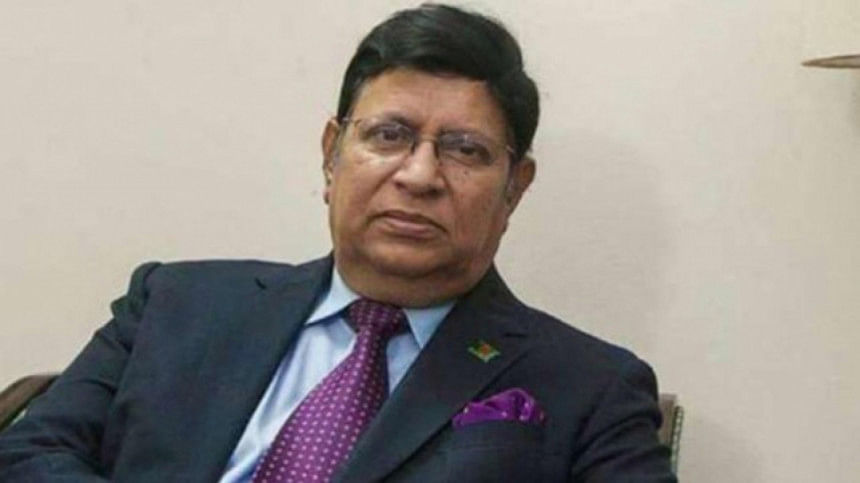Buying Vaccines: Momen doubts it’ll be smooth

Foreign Minister AK Abdul Momen expressed scepticism about procuring vaccines smoothly saying bilateral cooperation is not the only deciding factor and that issues of global politics are at play.
"We have discovered, with shock and disappointment, that global politics and affluence-power nexus have the overpowering dominance in the global society…," he said at a webinar titled titled "Revisiting Contemporary Peace and Security Challenges in the South Asian Region", organised by Bangladesh Institute of International and Strategic Studies (BIISS).
It was attended by diplomats, academics and government officials.
Momen said due to the sudden rise in Covid-19 cases in neighbouring countries, it is imperative that South Asian nations receive their share of the vaccine without any strings attached.
"In addition, we demand that Covid vaccines be a public good and its technology should be shared and available to all countries to produce it at affordable prices."
He made the remarks at a time when Bangladesh is struggling to get vaccines since India halted export of the Oxford-AstraZeneca vaccines in February after Serum Institute of India supplied only seven million of the 30 million contracted by Bangladesh.
The country then initiated imports from China and Russia, and also made requests to the UK, US, Canada and Australia in this regard. China gifted 11 lakh doses of Sinopharm vaccines, while the US provided one lakh 600 Pfizer doses so far under the Covax initiative.
Last week, Momen said the countries were hoarding vaccines and attaching conditions.
At the webinar, he said this pandemic showed how political leaders, scientists, and citizens cannot operate in isolation during health crises. Health emergencies must be viewed as global security crises that require coordination and cooperation among all stakeholders.
He called for stronger regional and international cooperation in order to mitigate the impact of the pandemic and to help during the rebuilding phase.
The number of traditional wars between states is falling, while insurgencies, civil war and sectarian rifts are on the rise in the global and South Asian security landscape.
South Asia, as a region, needs to decipher the challenges and opportunities that might emerge from these new systemic shifts for a better future, he observed.
Touching upon the Rohingya issue, Momen said what was once an internal matter for Myanmar has now destabilised the regional tranquillity of South and Southeast Asia, triggering a global outcry.
In the backdrop of the recent political turmoil in Myanmar, the international community must realise that the country has a long history of persecuting its own people, especially the Rohingyas, under the pretext of security operations.
"It is better if regional leaders understand early on that statelessness of a large ethnic group, in the face of persecution, might open up a 'volcano', if not treated with promise and action to serve justice."
Lt Gen M Harun Ar Rashid (retd) said conflicts between major powers in South Asia pose a major challenge for the region. With all its existing internal problems, it will witness a graver scenario if regional integration is not strengthened.
The densely-populated region is already witnessing millions of people being pushed into poverty, while there are challenges of religious fundamentalism, terrorism and environmental degradation, he said.
Ambassador Fazlul Karim, chairman of BIISS, said regional cooperation in South Asia should be strengthened to thwart any interventions by the super powers.
He also said a major challenge for Bangladesh is to sustain growth and recover the economies, while calling for global cooperation.
Professors Imtiaz Ahmed and Rashed Uz Zaman of international relations at Dhaka University; BIISS DTG Major Emdadul Bari, Research Fellow M Ashique Rahman and Additional Inspector General of Special Branch Monirul Islam, among others, spoke at the virtual event.

 For all latest news, follow The Daily Star's Google News channel.
For all latest news, follow The Daily Star's Google News channel. 


Comments